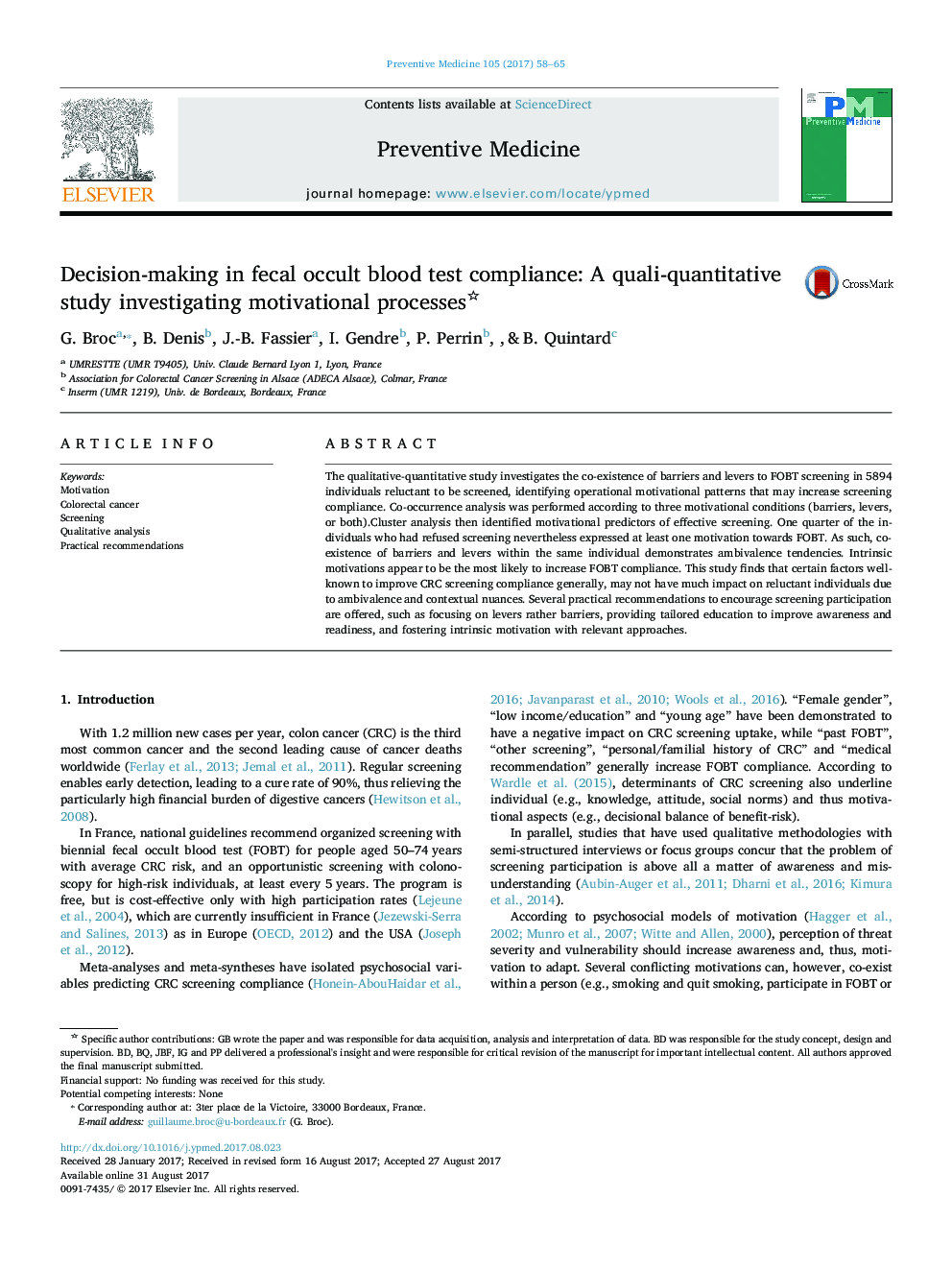| Article ID | Journal | Published Year | Pages | File Type |
|---|---|---|---|---|
| 5635463 | Preventive Medicine | 2017 | 8 Pages |
â¢Motivations underlying colorectal cancer screening have proved to be ambivalent.â¢More than a quarter of reluctant people evoke at least one motivation to be tested.â¢Focusing on levers rather than on barriers would increase participation.â¢Motivational profiles affect further colorectal screening participationâ¢Intrinsic motivations better predict behavior rather than extrinsic reasons
The qualitative-quantitative study investigates the co-existence of barriers and levers to FOBT screening in 5894 individuals reluctant to be screened, identifying operational motivational patterns that may increase screening compliance. Co-occurrence analysis was performed according to three motivational conditions (barriers, levers, or both).Cluster analysis then identified motivational predictors of effective screening. One quarter of the individuals who had refused screening nevertheless expressed at least one motivation towards FOBT. As such, co-existence of barriers and levers within the same individual demonstrates ambivalence tendencies. Intrinsic motivations appear to be the most likely to increase FOBT compliance. This study finds that certain factors well-known to improve CRC screening compliance generally, may not have much impact on reluctant individuals due to ambivalence and contextual nuances. Several practical recommendations to encourage screening participation are offered, such as focusing on levers rather barriers, providing tailored education to improve awareness and readiness, and fostering intrinsic motivation with relevant approaches.
